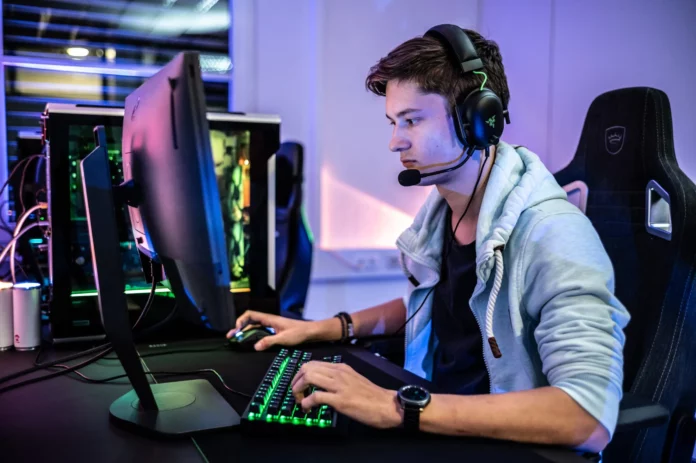In the 21st century, the definition of “sport” is undergoing a radical transformation. No longer confined to the physical realm, sports now encompass a digital arena where competitors battle not with muscles, but with strategy, skill, and lightning-fast reflexes. This evolution is none other than the rise of competitive gaming, or esports, a phenomenon that is fundamentally changing the landscape of sports as we know it.
At first glance, competitive gaming might seem like an anomaly in the world of sports. Traditional sports enthusiasts may question whether sitting in front of a screen, clicking buttons, and maneuvering virtual characters can truly be considered a sport. However, to dismiss esports as mere child’s play is to overlook the immense skill, dedication, and athleticism required to excel in this domain.
One of the most striking aspects of competitive gaming is its inclusivity. Unlike traditional sports, which often require a certain level of physical prowess or access to specialized facilities, esports is accessible to virtually anyone with a computer and an internet connection. This democratization of sports has opened doors for individuals who may have been sidelined by traditional barriers to entry, whether due to physical disabilities, geographical limitations, or financial constraints.
Moreover, the global nature of esports has fostered a sense of community that transcends borders. Competitors from around the world can come together on virtual battlegrounds, united by their shared passion for gaming. This global interconnectedness has not only expanded the reach of sports but has also promoted cultural exchange and understanding on an unprecedented scale.
But perhaps the most significant impact of competitive gaming is its challenge to traditional notions of athleticism. In esports, success is not determined by one’s physical strength or endurance but by mental acuity, strategic thinking, and split-second decision-making. Professional gamers undergo rigorous training regimens to hone their skills, practicing for hours on end to achieve peak performance.
Furthermore, the physiological demands of competitive gaming should not be underestimated. Studies have shown that professional gamers exhibit heightened cognitive abilities, including enhanced hand-eye coordination, rapid decision-making, and superior reaction times. In essence, competitive gaming requires athletes to push the limits of their mental faculties in much the same way that traditional sports push the limits of physical prowess.
The recognition of esports as a legitimate sporting endeavor has been steadily growing in recent years. Major esports tournaments now rival traditional sporting events in terms of viewership, with millions of fans tuning in to watch their favorite players compete on platforms like Twitch and YouTube. The prize pools for these tournaments have also reached staggering heights, with top players earning millions of dollars in winnings and endorsements.
As a result, esports has attracted the attention of mainstream sponsors and investors eager to capitalize on the industry’s explosive growth. Major corporations, including tech giants like Microsoft and Intel, have invested heavily in esports infrastructure, sponsoring teams, events, and leagues. Traditional sports franchises have also taken notice, with many professional sports organizations forming their own esports divisions to tap into this burgeoning market.
The integration of esports into the broader sports landscape has led to innovative cross-promotional opportunities. Traditional sports leagues have begun hosting esports events alongside their live games, attracting new audiences and engaging fans in exciting new ways. Likewise, esports organizations have partnered with mainstream brands to create unique marketing campaigns and branded content.
However, the rapid commercialization of esports has also raised concerns about the integrity of the sport. As prize pools and sponsorship deals continue to grow, so too do the stakes for players and teams. This has led to instances of cheating, match-fixing, and doping scandals that threaten to undermine the credibility of competitive gaming.
To address these challenges, the esports industry must prioritize integrity and transparency, implementing robust regulations and enforcement mechanisms to ensure fair play. Additionally, greater efforts should be made to support the health and well-being of professional gamers, including initiatives to combat issues like gaming addiction and burnout.
Ultimately, the rise of competitive gaming is not just a revolution in sports but a reflection of the evolving nature of competition in the digital age. As technology continues to advance and societal attitudes toward gaming evolve, esports will only continue to grow in prominence, challenging our preconceptions of what it means to be an athlete and redefining the very essence of sports itself. Whether on the field or in the virtual arena, the spirit of competition remains unchanged, driving individuals to push themselves to the limits in pursuit of victory.




